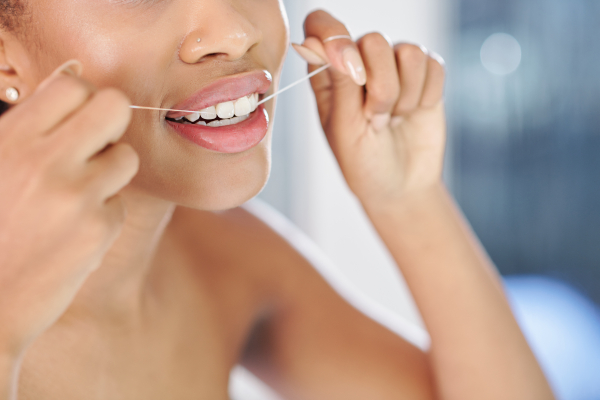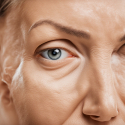- Europa
-
- Amstetten(7)
- Bad Schallerbach(1)
- Baden(4)
- Berg(1)
- Braunau am Inn(5)
- Bregenz(3)
- Bruck an der Mur(1)
- Graz(4)
- Hartberg(1)
- Innsbruck(5)
- Kemmelbach(1)
- Kitzbühel(4)
- Klagenfurt(5)
- Krems an der Donau(1)
- Kufstein(5)
- Leibnitz(1)
- Lienz(1)
- Liezen(1)
- Linz(5)
- Oetz(1)
- Punitz(1)
- Radstadt(1)
- Salzburg(5)
- St Polten(2)
- Steiermark(1)
- Steyr(1)
- Steyregg (1)
- Traun(3)
- Vienna(26)
- Villach(5)
- Völkermarkt(1)
- Wels(5)
- Wien(1)
- Wiener Neustadt(4)
-
- Aalst(1)
- Aarschot(2)
- Affligem(1)
- Anderlecht(5)
- Antwerp(11)
- Antwerpen(1)
- Arlon(6)
- Ath(2)
- Aubange(5)
- Bastogne (2)
- Blankenberge (1)
- Bruges(5)
- Brussels(15)
- Charleroi(5)
- Deinze(3)
- Dendermonde(1)
- Diest(2)
- Etterbeek(5)
- Geel(1)
- Genk(5)
- Gent(6)
- Geraardsbergen(1)
- Grimbergen (2)
- Hasselt(5)
- Heusden- Zolder(2)
- Ieper(1)
- Izegem(1)
- Knokke(4)
- Kortrijk(2)
- La Louviere(2)
- Leuven(5)
- Liege(4)
- Limburg(4)
- Lommel(1)
- Mortsel(1)
- Oostende(1)
- Turnhout(1)
-
- Chelyabinsk(1)
- Dubna(4)
- Gelendzhik(1)
- Irkutsk(1)
- Kaliningrad(1)
- Kazan(4)
- Krasnodar(3)
- Krasnoyarsk(1)
- Maykop(1)
- Moscow(50)
- Nizhny Novgorod(4)
- Novosibirsk(1)
- Omsk(1)
- Penza(1)
- Rostov-on-Don(2)
- Saint Petersburg(13)
- Samara(1)
- Saratov(1)
- Serpukhov (2)
- Sevastopol(3)
- Sochi(5)
- Stavropol(1)
- Surgut(1)
- Tyumen(2)
- Ufa(2)
- Vladivostok(3)
- Yekaterinburg (11)
-
- Alicante(8)
- Barcelona(113)
- Benalmadena(1)
- Benidorm(7)
- Castellón de la Plana(1)
- Denia(1)
- Estepona(1)
- Fuengirola (3)
- Ibiza(49)
- Jerez de la Frontera(1)
- Lanzarote(1)
- Las Palmas de Gran Canaria(5)
- Madrid(57)
- Malaga(9)
- Marbella(48)
- Murcia(1)
- Oviedo(1)
- Palma de Mallorca(48)
- Puerto Banus(3)
- Seville(1)
- Tarragona(1)
- Tenerife(7)
- Torrevieja(3)
- Valencia(9)
- Vigo(1)
- Zaragoza(1)
- Worldwide
How to Properly Care for Your Oral Cavity?
 Brushing our teeth is a daily ritual, seemingly straightforward and ingrained in us since childhood. However, to maximize the benefits of this routine, it's essential to understand the proper techniques for brushing and overall oral care.
Brushing our teeth is a daily ritual, seemingly straightforward and ingrained in us since childhood. However, to maximize the benefits of this routine, it's essential to understand the proper techniques for brushing and overall oral care.Do you know why a dentist is not just a tooth doctor?
The reason lies in the fact that they treat and prevent diseases not only of the teeth but of the entire oral cavity (from the Latin "stoma" meaning mouth).
Here are four tips for maintaining the hygiene of your teeth, gums, lips, and the entire mouth lining:
1. Toothbrush
Every day, twice a day, for at least two minutes, you should brush your teeth—from the first baby tooth to the last permanent one. And even after that (crowns, prosthetics), we continue to use a toothbrush.
There are two main types of toothbrushes: manual (handheld) and electric (sonic and oscillating-rotating). While toothbrushes are great, a tooth has five surfaces, and we can only clean three of them effectively. The other two, the contact surfaces, require interdental brushes or dental floss.
Your dentist can help you choose the right brush, sizes of interdental brushes, and other hygiene products. Don’t forget to ask about the correct brushing technique.
It’s noteworthy that recent studies highlight the advantages of electric toothbrushes, but it’s crucial that they have a pressure sensor.
2. Toothpaste and Mouthwash
We often choose toothpaste with great care, heavily influenced by marketing strategies that lead us to buy specific products. However, these are not always the best or most effective options. Medicinal toothpaste, which your dentist should prescribe, may have therapeutic effects.
The primary function of toothpaste is additional cleaning and disease prevention, often targeting cavities. It's important that toothpaste contains fluoride, while other ingredients (more organic compositions, absence of dyes, artificial preservatives, SLS, etc.) are personal choices.
Another key recommendation is that toothpaste should not be highly abrasive. The so-called RDA (Relative Dentin Abrasivity) index should be between 70-100. For children, choosing toothpaste requires even more scrutiny.
Mouthwash is equally important, sometimes necessary for treating mucous membrane pathologies and periodontal diseases. However, even simple water rinsing, especially after eating/drinking coffee/sweets, can be beneficial.
3. Your Tongue Needs Cleaning Too!
It’s proven that bad breath can be linked to undigested food residues and bacteria on the upper surface of the tongue. Scrapers can help with this.
However, be cautious if there’s excessive plaque formation—it could be a warning sign!
4. Lips Need Moisturizing
Remember to use hygiene products for your lips. If crusts form, don't peel or scrub them off—moisturize instead! This is crucial!









